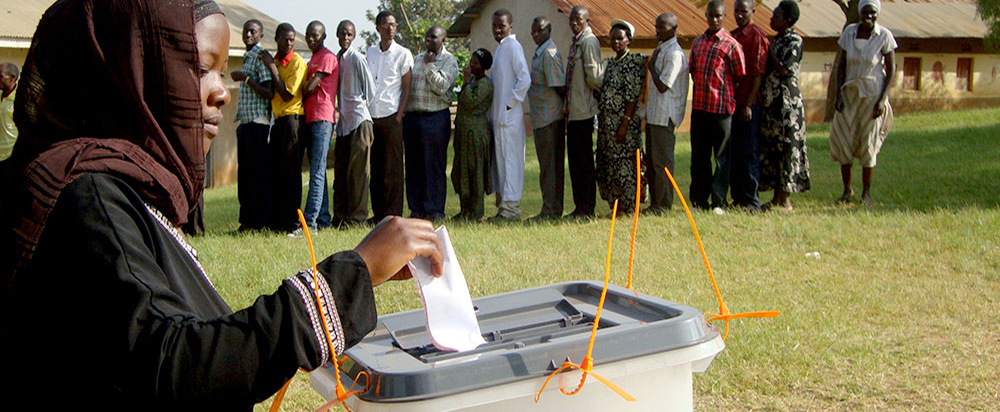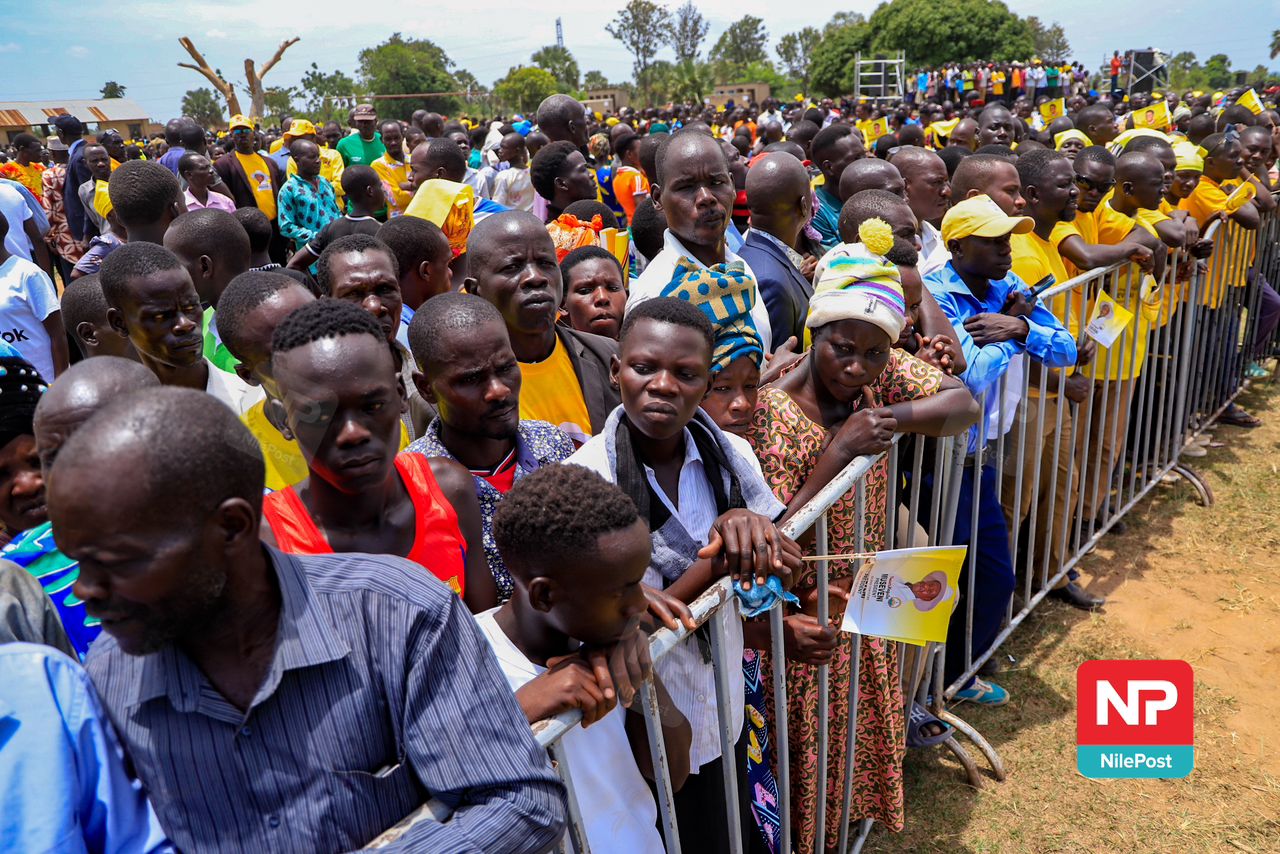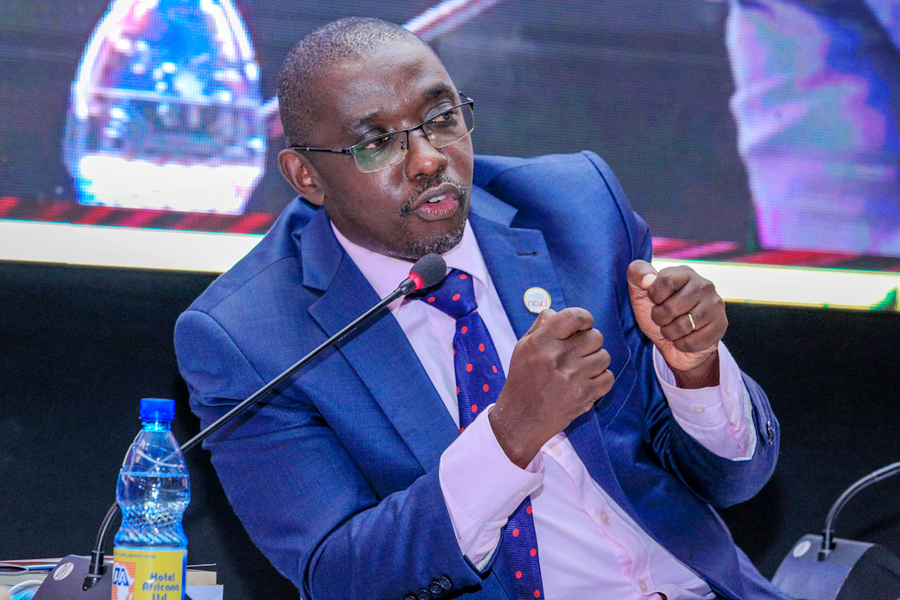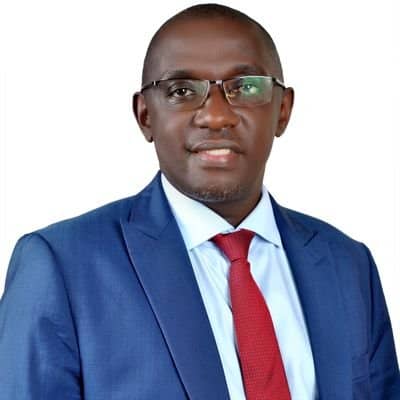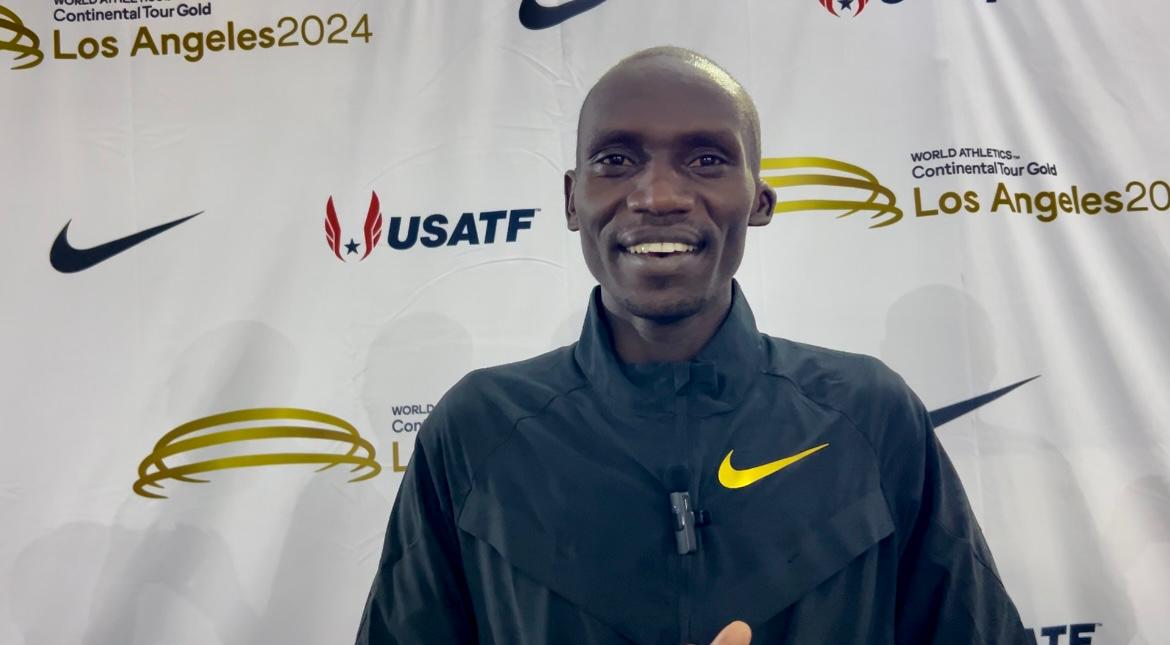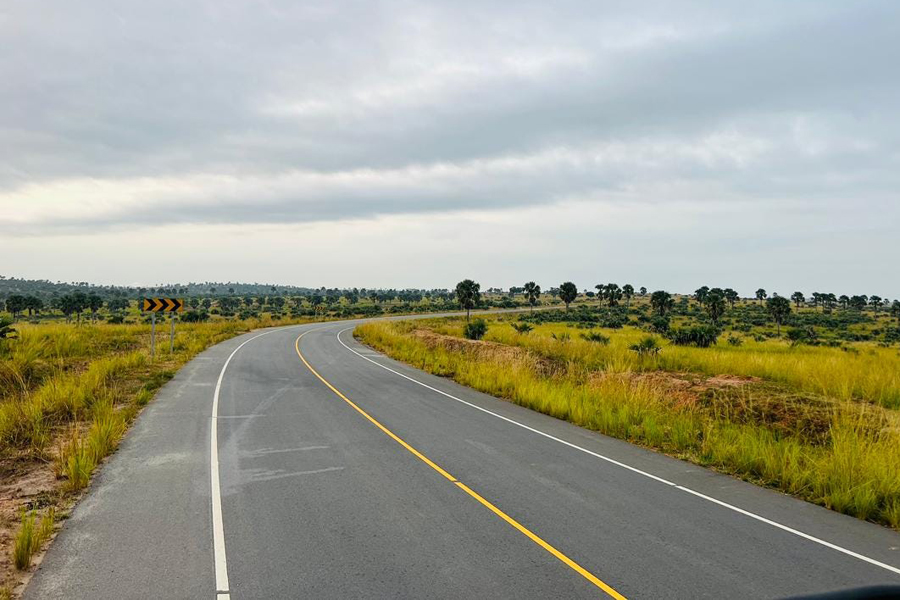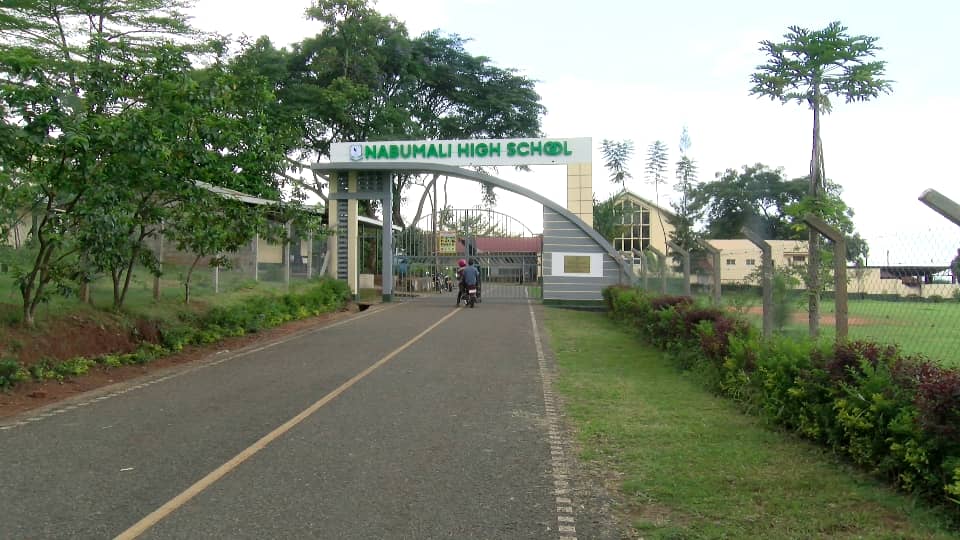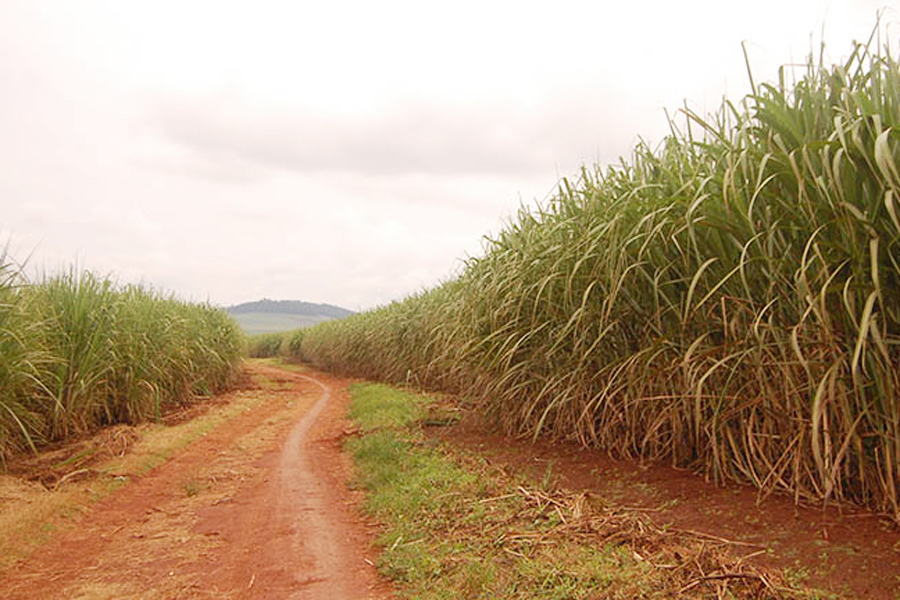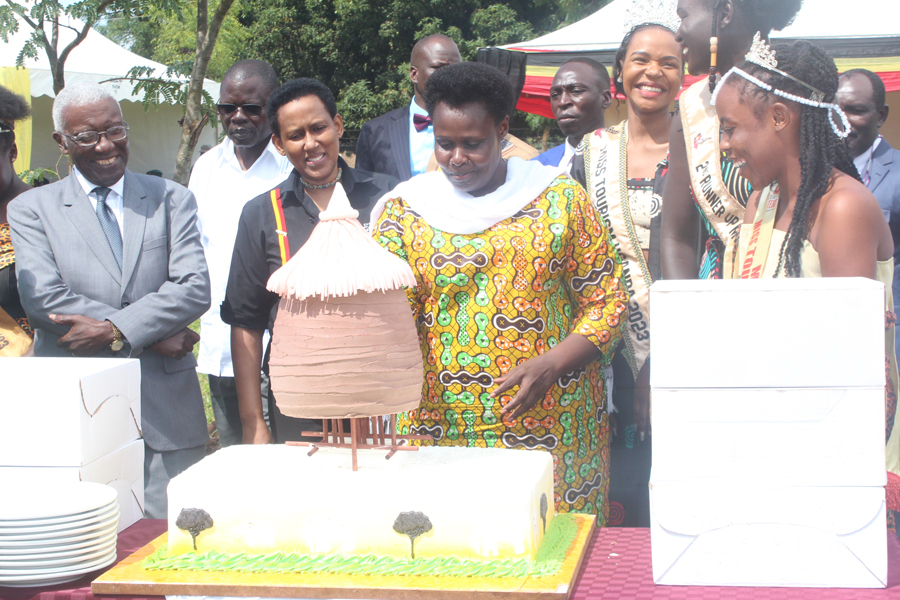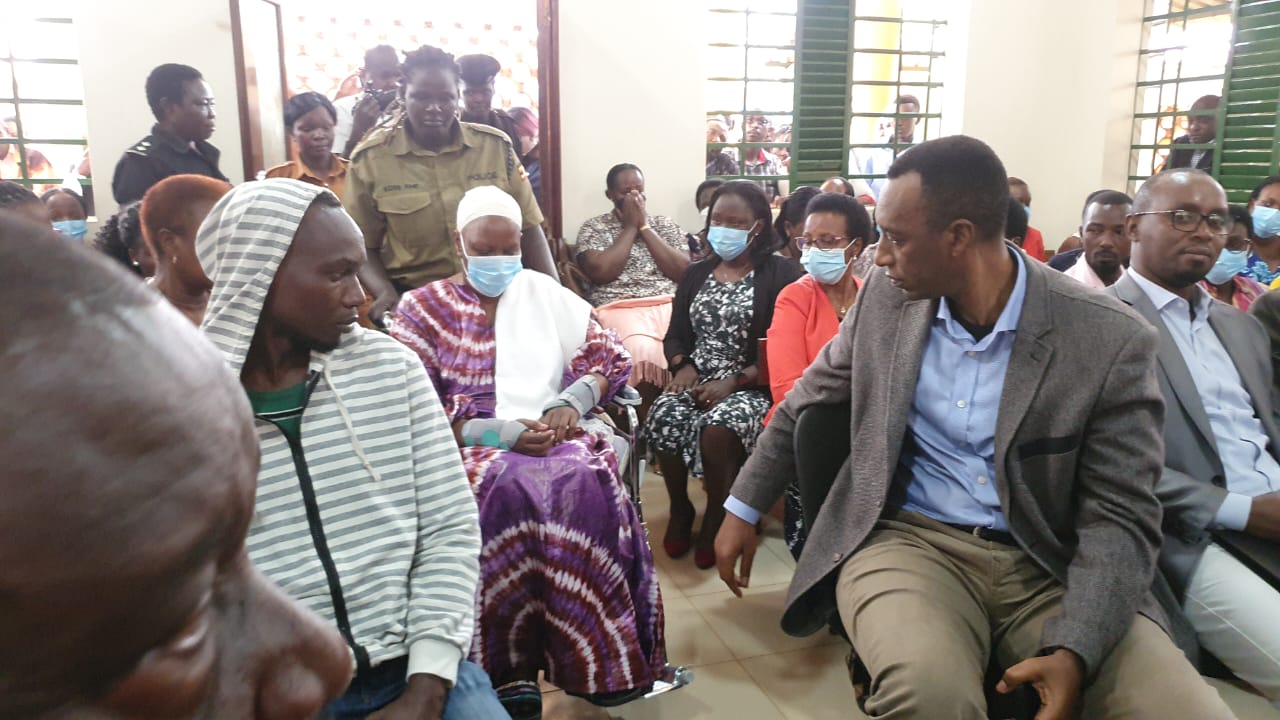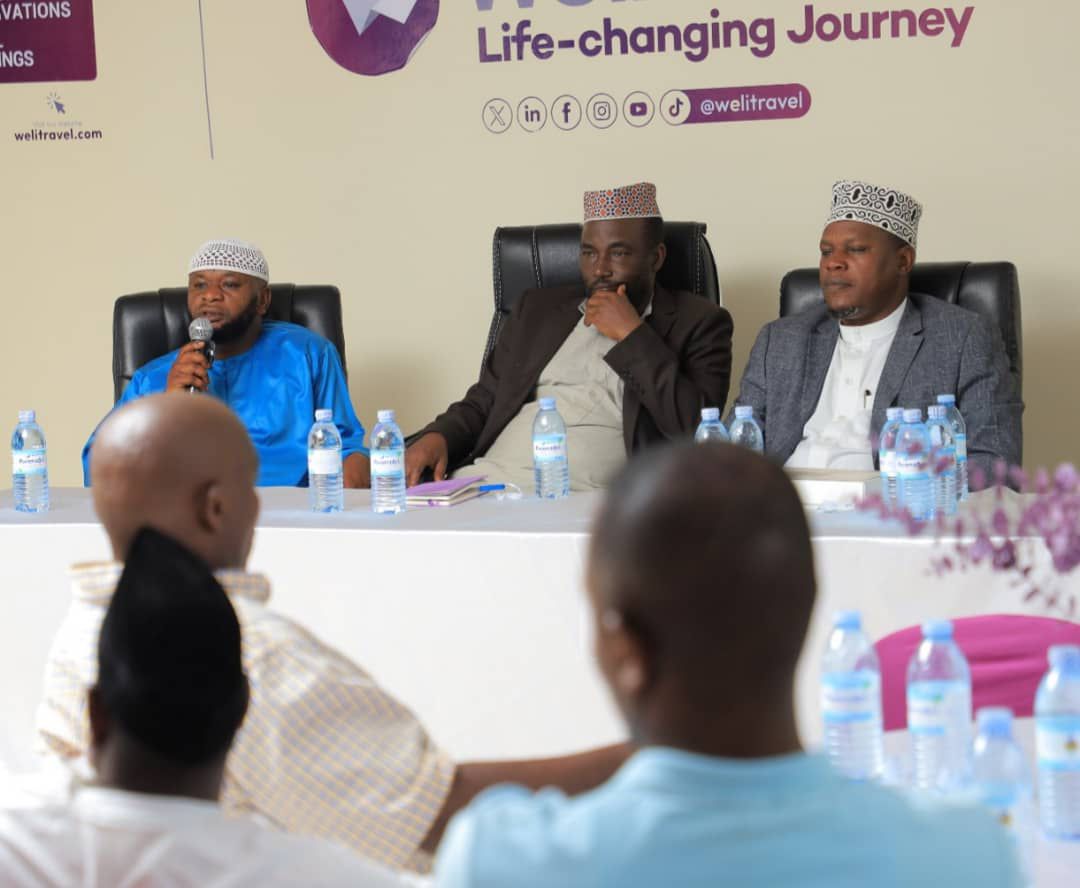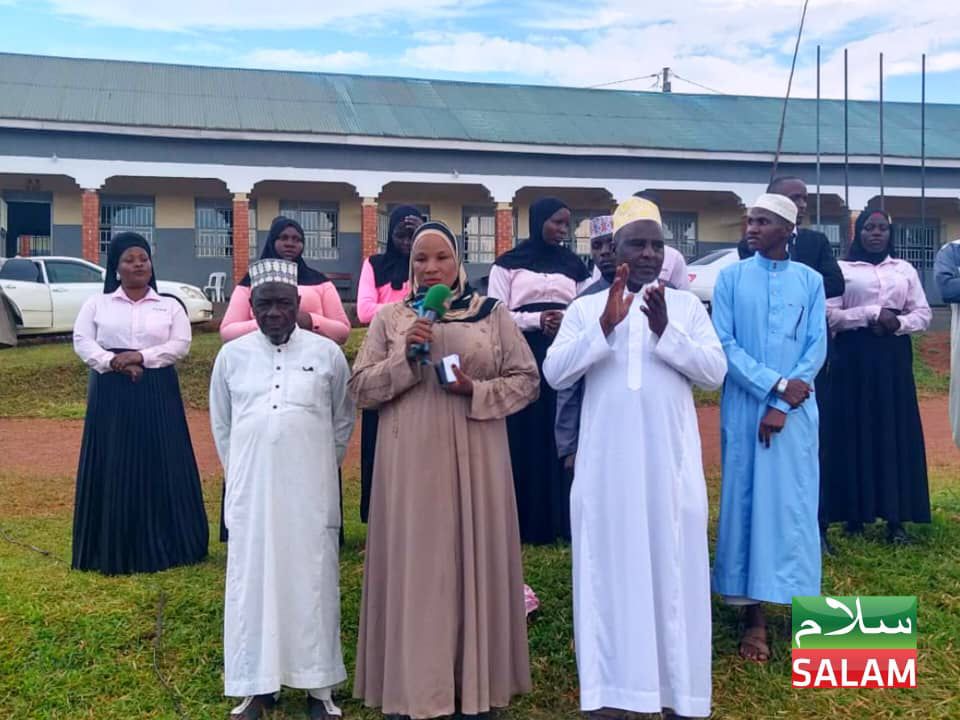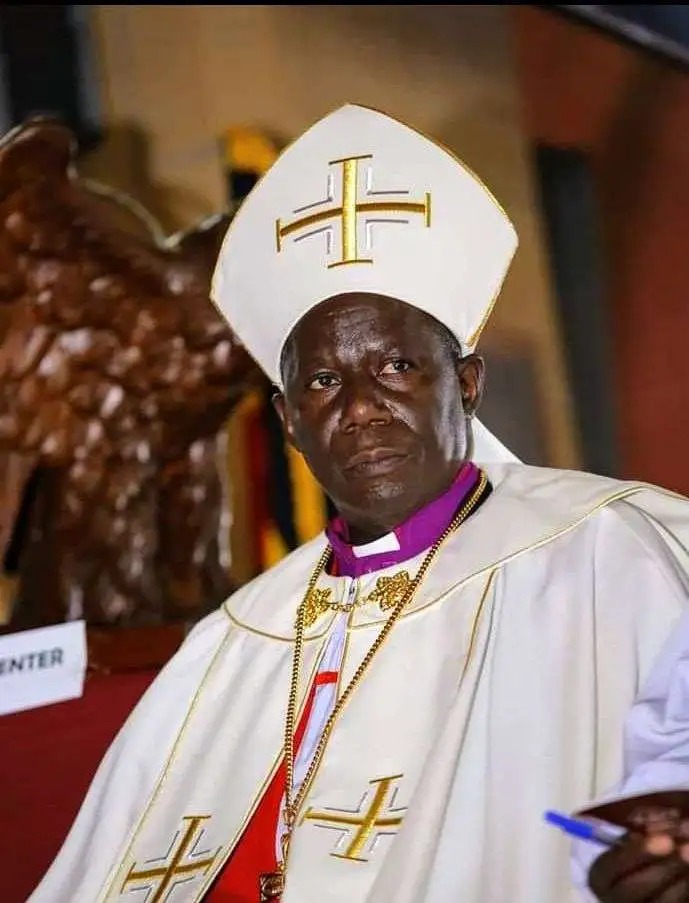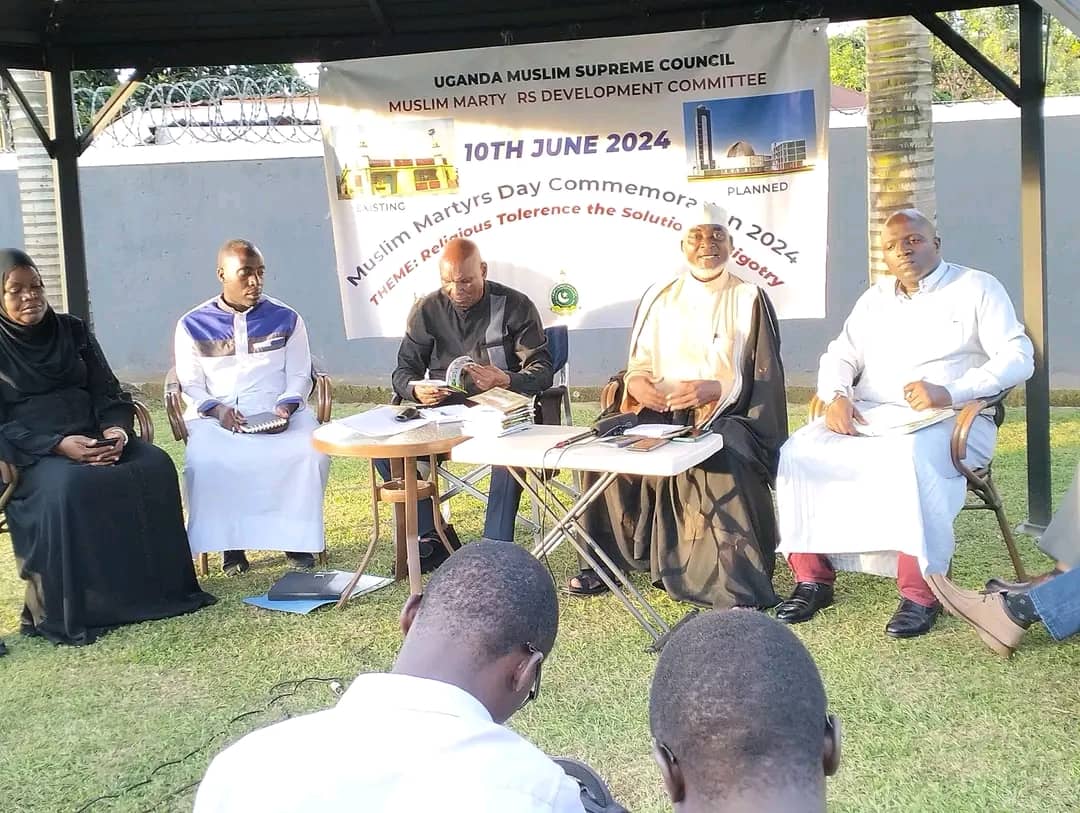BIG INTERVIEW: EC does not cause violence in elections - Byabakama

BIG INTERVIEW | As Uganda gears up for the 2026 elections, the Electoral Commission (EC) finds itself at the heart of the planning process amidst a flurry of concerns.
The Commission is grappling with challenges such as funding shortfalls, credibility issues, and accusations of extravagant spending. How does the commission intend to address these pressing issues?
Keep Reading
In an interview, Justice Simon Byabakama, the chairman of the Electoral Commission, assured the public of free and fair elections in 2026, emphasising the importance of all stakeholders adhering to their respective roles.
Justice Byabakama acknowledged past instances of voter bribery and electoral fraud, and pledged the commission's commitment to combating such malpractices.
Excerpts;-
*******************************
As you approach the 2026 general elections, reflecting on your inaugural election in 2021, what key lessons have you gleaned?
I would like for all Ugandans to know that the 2021 elections were held in unprecedented circumstances owing to the then prevailing Covid-19 pandemic. So, as a result, we had to be adaptive to the environment and also flexible in the way we run elections, which was contrary to the norms.
So, we realised that working together with the people of Uganda, we can surmount any challenge and any eventuality in an election. We can have credible elections no matter the circumstances provided we follow in the same directions.
The other lesson we picked was that political parties need to up their games because in some instances, we realised that unresolved internal party issues had spillover effects onto our roadmap, and we found that this impacted the process of printing ballot papers.
Could you point to specific examples of that?
There are quite a number, I don't have them offhand, but it was mainly from the big parties where some issues were not adequately and promptly handled, which, to some extent, impacted our roadmap.
But going forward, we are having discussions with political parties and urging them to ensure that any emerging issues in their party primaries are resolved well in time so that they do not negatively impact the road of the Electoral Commission.
As the custodian of political party registries and the mediator in intra-party conflicts, you are tasked with navigating the current wave of controversies and factional disputes within several political parties. What implications do these dynamics hold as you gear up for the upcoming election cycle?
I think conflicts in any human establishment and human activities are normal. Conflicts happen in families, they happen at workplaces, the most important thing is having the mechanism to resolve these conflicts.
But for us, the regulator of political parties, first of all, we urge them to follow and abide by the law. Secondly, we have the National Consultative Forum, which is a legal umbrella body that was set up to look into, among other things, issues pertaining to the operations of political parties.
If there are issues that political parties cannot resolve themselves, then they have the courts of law. So they have all those channels to try and resolve all those conflicts.
To me, conflicts are healthy because it shows we are growing, we are improving; the only issue is how do we resolve them. We urge and insist that political parties must follow the due processes in resolving these conflicts.
Is there a concerning issue of voter apathy?
We believe that we undertake an extensive publicity of these elections. The candidates traverse the various areas of the country addressing the voters. We realised that the voters are adequately informed about these incoming exercises.
The challenge is why after the presidential and parliamentary elections, voter interest goes down. As the Electoral Commission, that's what we are trying to interrogate so that when we come to 2025/2026, we have that issue addressed.
Many point to concerns about the credibility of the electoral process as a contributing factor.
There is that perception or thinking, but you see, as the EC, our take is that in order for you to have credible processes, the various stakeholders who have a role to play in this process must follow the law, secondly abide by the regulations issued by the Electoral Commission under those laws, thirdly be civil and respectful to one another.
Let's be cognizant of the fact that I cannot be in this race alone unless through legal means alone, you are declared unopposed, which is okay.
A free and fair election is not a preserve of the Electoral Commission alone because if you talk of the ill or violence in our election, the violence is not committed by the Electoral Commission.
Are you able to rein in the armed forces when they interfere with the electoral processes?
We do. To begin with, the law applies equally to everyone. The guidelines and regulations that we issue apply to everyone. If we say, for instance, campaigns are to stop at 6pm, we expect everyone to abide by that.
To us, every candidate is on an equal footing within this process because that is what the laws stipulate, but the conduct of some actors, of course, is what taints the otherwise well-intentioned conduct of the process.
For instance, you have talked about security; we expect security to comply with the law. I am glad that where some errant officers have overstepped their limits, I think the relevant entities have come up to deal with those individuals at an individual level.
How do you determine that this is an act of the individual errant officer?
We act on the basis of the information or reports received, for instance, from the media, the public or even political parties themselves. We investigate those allegations, and if we find that there is merit to the claims, we take appropriate action.
This could include disciplinary measures against the individual officers involved or even legal action, depending on the severity of the offense. We also encourage the public to report any instances of misconduct or biased behaviour by security personnel or any other electoral stakeholders so that we can address those issues promptly and ensure a level playing field for all candidates.
It's important to note that the Electoral Commission cannot control the actions of every individual involved in the electoral process, but we are committed to enforcing the law and holding all actors accountable for their actions.
We work closely with relevant authorities, such as the police and other security agencies, to ensure that they understand their role in maintaining a peaceful and fair electoral environment.
For example, when Robert Kyagulanyi was arrested, I personally took the initiative to visit the police headquarters and meet with the Inspector General of Police. During this meeting, I inquired about the reasons behind the candidate's arrest.
We maintain an ongoing dialogue and engagement with various security agencies to ensure that the electoral process remains peaceful, civil, and promotes peace and stability.
It is crucial that we handle these matters with the utmost respect for the integrity and purpose of the electoral process.
Ultimately, our goal is to conduct elections that are transparent, credible, and reflective of the will of the people. We understand that there may be concerns and criticisms, but we are constantly striving to improve our processes and address any shortcomings to build trust and confidence in the electoral system.
Why does the Electoral Commission struggle to enforce its decisions?
If the Electoral Commission is to bite, it must have the authority embedded within the law to deal with errant people. But for now, the legal framework states that any person who is errant or commits an offense is subjected to the court process.
Meanwhile, the period is running. So now, the legal framework states that any person who is errant, who misconducts him or herself during the electoral process, is subject to the due process of the law.
By the time this is done, this fellow continues on the campaign trail. Unfortunately, we also have this culture in our country when someone commits electoral offenses and the matter is reported, and once elections are over, the matter dies out.
We have tasked our legal department to ensure that we follow up on those cases, but you see, the Electoral Commission is not the one complaining. So the complainant should follow up on the matter.
You are talking about the legal framework; one of the persistent concerns of the Electoral Commission has been the time at which you receive any new laws or electoral reforms. How prepared is the Commission for the upcoming elections?
Well, not yet. We have time and again pointed out that if there are any new areas or administrative units to be created, let them be created at least two years earlier on, the same with electoral reforms.
The purpose is to allow us to plan appropriately in the context of this new law or amendments. Secondly, to budget appropriately. We have proposed reforms on our own, and I think other stakeholders have also made those reforms.
We are waiting for Parliament. Our desire is that if we can have these at least before we get to the process of the roadmap that would be much smarter for everyone.
You are mandated by the Constitution and by the Electoral Commission Act to be able to determine the electoral areas in the constituencies. Why have you ceded those responsibilities to the creation of administrative units?
No, we have not ceded the responsibilities. The Electoral Commission is not the creator of the administrative units; it is the government. For us, our role is to ensure that when we are demarcating electoral areas, it has to conform to the boundaries of these units. That is why I have said when these units are created belatedly, it affects us.
You asked for Shs1.3 trillion to run the next elections; Parliament is proposing to give you less than 10 percent of that.
No, they have not proposed anything yet. Parliament has not yet come back to us formally to say we are giving you this money. We have appeared and we have presented our budget.
In order for these activities to be undertaken effectively, we need this money, and we are waiting to hear from them.
Your budget has been a subject of huge debate in Parliament and outside Parliament.
I would like to see Ugandans appreciate that the budget for general elections for this country is always on an upward trajectory right from 1996; I wish I had the figures.
From 1996, the budget has never gone low; it keeps going up. What was the cost of fuel in 2021? What is the cost today? What was the exchange rate in 2021? And some of this equipment, we procure from outside the country?
We have so many factors we are looking at. Then we also have the voter population. The voter population keeps going up. So these are some of the drivers.
MPs said some of your figures in the Budget Framework were wasteful and inflated
Well, since we appeared before Parliament, I think they have the prerogative to point out to us that this is not proper, this is wasteful. But look, when we present the budget, it is up to the other stakeholders to look at the budget, then agree or not, and then we have further discussions.
Actually, we have been having further discussions on the budget with the Ministry of Finance, if I can say so.
You have asked for half a billion shillings for the national prayer breakfast. How do you justify that?
I think the whole thing was probably misconceived. We are looking at prayers throughout the entire country. When it comes to the Electoral Commission, the commission uses various methods to reach out to the people, to rally Ugandans, galvanise the efforts of Ugandans, and draw their attention to the people.
And Uganda is a country of faith. We believe so much in God in our respective denominations. Let's not misconstrue the purpose of that exercise by simply looking at that figure.
The prayers are not only going to take place in Kampala; they will take place all over the country. If you are going to do that across the country, is that a lot of money?
You have a significant funding gap between your desires and the debate we are hearing. When you have this significant funding gap, what does that mean for the management of the process?
One thing that we have been emphasising is that all various activities of the general elections as laid down in the roadmap are critical. None of them is more important than the other. For instance, you don't reorganise the polling stations, and then you cannot have voters allocated to the polling stations.
You must start with that process, which is supposed to commence, I think, in July this year. You cannot have polling unless you update the register. So all those processes must be undertaken well in time.
That is why we keep emphasising that the delayed release of resources or funds to the Electoral Commission, therefore, means we have to adjust the commencement of a certain activity to another period. For example, in this financial year, we expected to get some funding for the first phase of the budget, but the Ministry of Finance has not been able to do that.
So it means that the activities that were supposed to be done in this financial year have to be postponed to another financial year.
What exercise are you talking about?
According to the roadmap, in July this year, we are expected to begin with the demarcation of the electoral areas and reorganisation of polling stations. That is the first activity.
But remember, the preparatory processes must be conducted in this financial year. That is why we wanted those resources.
We have to recruit people to do that, and we are having a shortage of funds. So, as I said, we have to do these activities next financial year.
Do election rigging allegations hold weight in this country, with complaints from various parties including the NRM led by President Museveni?
If rigging occurs, who is responsible? Ultimately, it boils down to the actions of individuals involved in the electoral process.
Are elections rigged in this country?
Rigging can take various forms, such as invading polling stations and tampering with ballot papers. The real question lies in how such incidents are handled. Should questionable ballot papers be counted, or disregarded?
Similar to other societal issues like violence and voter bribery, rigging does occur. However, it's important to note that the Electoral Commission, security forces, candidates, and other stakeholders each have their roles to play in ensuring a fair and transparent electoral process.
Commercialisation of elections, where democracy seems to be up for sale, poses a significant threat to the integrity of our electoral system.


